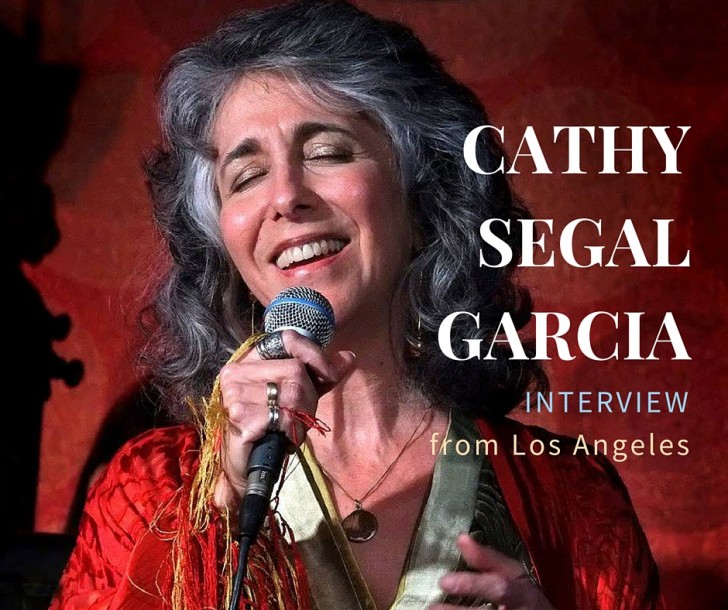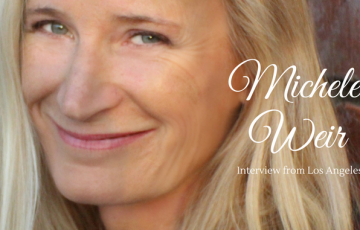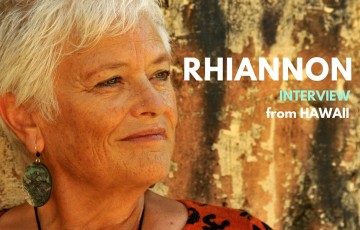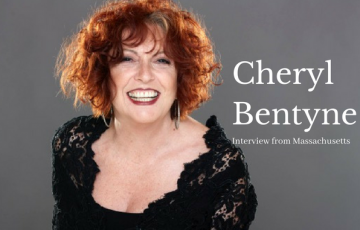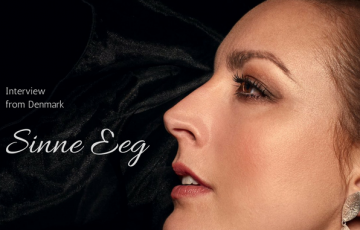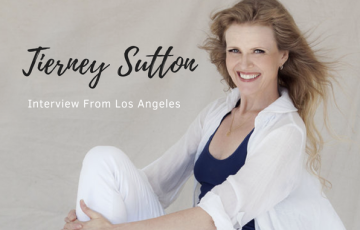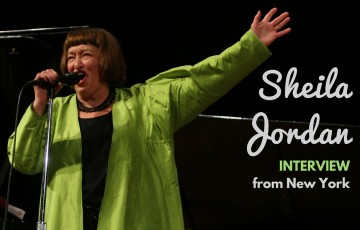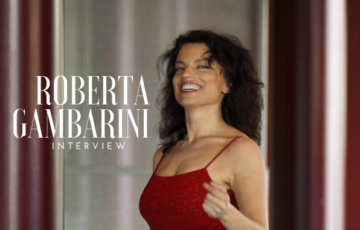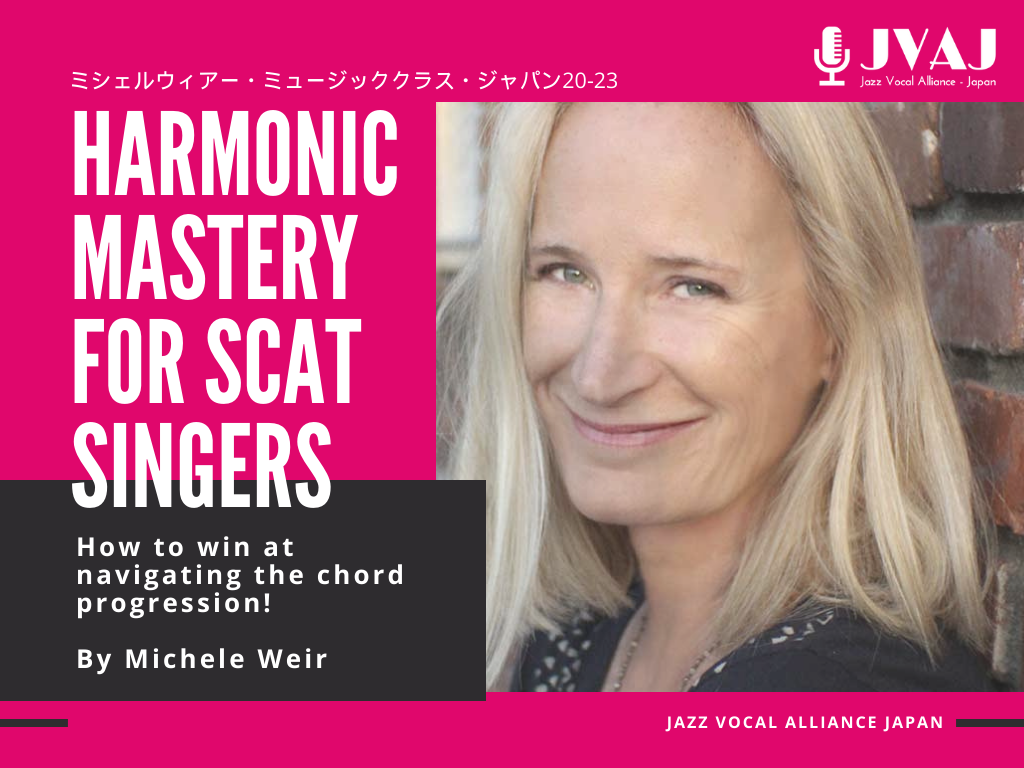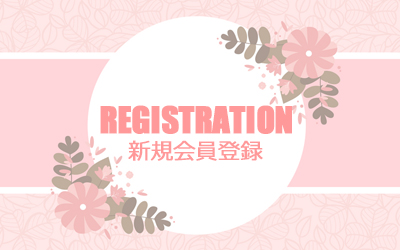- English (United States)
- 日本語
Interview about the questions from Jazz singers/vocalists in Japan:
Her teaching & policy, Jazz in L.A., contents of her workshop (voice tech, scatting and making magic of music.)
Biography
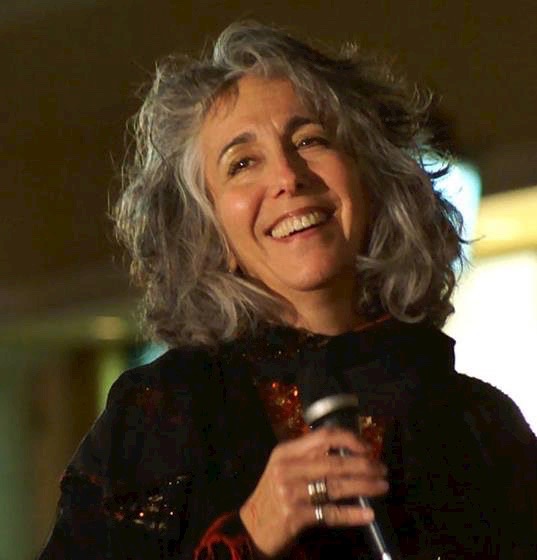
Cathy Segal Garcia
Ms. Cathy Segal Garcia was born into a musical family in Boston, attended Berklee 1972-1975, then moved to San Francisco and L.A., consistently teaching and performing with hundreds of musicians, some extremely well known. She travels around the world teaching and singing jazz, and has been coming to Japan since 1985, working and recording with Osaka pianist Phillip Strange much of that time. Ms. Segal-Garcia is very well known and respected in L.A. for her major contributions to the Jazz scene, and has won awards and honors, such as this year’s “Living Legend” award. She has 9 recordings, and is presently working in the studio on her 10th. “A model of warm, exquisitely focused jazz vocalizing…sensuous voice and cool harmonies.” Don Heckman….. L.A. Times
Interview
-
Hello Cathy! How are you feeling about your recent workshops and gig in Japan? (about her stay in Autumn 2015)
I’m looking forward to coming! I feel like Japan is my second home because I’ve been traveling there for so many years, and I feel so comfortable with the land, the language, and the people. First I’ll go to the Fukuyama area and then I’ll come up to Tokyo.
-
What brought you to Japan? What did you like about it?
Well…many years ago I started coming to Japan for only live performance. I met the president of Koyo Conservatory while I was in Fukuoka singing, and he started bringing me there to tour around the country. Since he owned a school as well as being a booking agent, I started teaching clinics for him. Now, for many years, I’ve taught privately as well, mostly in Osaka, although I did teach in Tokyo a long time ago.
Surely it’s so fun!! I really get a lot of pleasure teaching Japanese students. For some reason, a big percentage of the Japanese jazz singers really have good “ears”, and an innate sense of what Jazz is made up of. I have a theory about why that is… Besides the obvious experience that everyone seems to have had in their life at some time kaoroke….I think that the Japanese culture is built with certain qualities of art. What may seem ordinary to a Japanese person, like the delicate way that you may cook food and serve it, is, to an American person, beautiful and delicate artfulness.
And the necessity of making a compact space into something special…as in a small area used as a garden. There is an understanding that there is a limited space, in which one must create a feeling of large space, using certain elements. I feel this is reflective of what Jazz is. One has a song form, and within that song form, one must be creative, using certain elements, like dynamics, rhythms, and harmonic play.
As well, I find that my personal relationships with Japanese people are very special to me. It seems that I can immediately become fond of the person in front of me. My communications with my students are easy and the feelings are warm. Japan is peaceful for me. I love the food, the land, and the people. Being there makes a special heart for me.
-
Could you let us know who are your idols? Please tell me about a couple of your most favorite musicians!!
Oh my gosh! This is a hard question! I have a lot of favorites. You see, what I admire the most in an artist is honesty. So no matter what the style of music is, if the artist is truthful in their creativity, I usually am admiring them. Well, I listen to singers and musicians equally. Some singers I love are: Andy Bey, Nancy King, Bobby McFerrin, Cassandra Wilson, Elis Regina, Mary Stallings, Norma Winstone, Joe Williams, Frank Sinatra. Singers usually have periods of time that are better or worse, so the rest of the list of singers is quite large. Some musicians I love: John Scofield, Weather Report, Billy Childs, Phillip Strange, Bill Evans, Jaco Pastorius, Kenny Werner, Cannonball Adderly, Chick Corea. So many, and depending on my mood too!
-
What part of singing Jazz do you love the best? And what is your strong point as a jazz singer?
I love reaching the magic together with the musicians. That feeling of being in that magic, god-filled space with musicians. You’re all in the same “room”, and everything that happens there is perfect. That’s what real perfection is to me.
My strong points: Reaching the magic place. Rhythm is a strong point for me, my “time” is good, and I am good at playing with rhythm. My sense of harmony is good…I pick unusual notes within the harmonies. I can make the band and the audience feel very comfortable, as if they are in my living room! And I am able to touch people warmly in my ballad singing.
-
What do you care most about as a jazz singer in your music?
My book that I work from mostly has 500 songs. Some live performances are special concerts, where I do choose the repertoire ahead of time. But on many of my more casual gigs I am spontaneous. Depending on the feel of the evening, the audience, the musicians, the condition of my voice…these are the things that I react to. I always want to be in the magic. I find that being in the present moment goes with the magic. A rule for most professional players is not to get stuck in judgment over something that happened, like what you believe is a mistake. You must stay in the moment, and look to the future moment. This is true as a perspective and also true for the harmony as well, for excellent singing and improvising/scatting you must have a feeling for what is coming. There is no time to spend looking backward.
-
How about recording? Could you share your experience about your CD making? What did you like about them?
Actually I cannot tell which CD is my favorite because for each CD, the time I spent making it was special. All my heart and soul went into the CD I was working on. So when I look back, or listen to them, I am returned to that moment and I can feel the goodness I put into it. And recording in the studio is a very challenging and different experience than live performance. The learning from it is very deep.
-
And what do you care most about as a teacher?
I want to be able to feel and see what the student is feeling. Why are they holding back? What part of their body is having difficulty? Which piece of the puzzle is missing in their singing? What idea do they have to change? How can they improve? How can I help them to understand and to put into action the best thing that would help them? How can I be kind while I’m doing this, and make them feel safe enough to experiment and learn what they have to learn?
-
Could you teach English pronunciation, intonation, and enunciation for the students who speak English as a 2nd language?
I can do this easily. The difficult part of it might be enunciation for the student, because sometimes the change they have to make needs a lot of practice.
-
Could you help them with their interpretation of the lyrics? For the non-native English speaker, what do you think are the important points?
Interpretation is really fun to teach to the 2nd language person! When you really understand the meaning of the words, it can be mind-blowing! With the use of a dictionary, and a kind and understanding teacher, you can realize a very different thinking about the song.
-
Could the lessons & workshops be recorded? Please let us know if you have any good ideas for us to do to make your lesson & workshop most effective.
I absolutely suggest that you record your lessons! Even for the same language student and teacher, this is important, because we tend to forget what was said in the lesson, even if it’s wonderful in the moment! I also suggest that the student’s first several times listening back to the recording, he or she should take notes, writing down the poignant points, the things that the teacher stresses as important, and the things that the student feels are important. This will put that information deep into your memory and is most useful. Of course, practicing it often is very important! If you practice the correct things, consistently, you will definitely improve. This I can guarantee.
-
What kind of things do you teach at the workshop? Could you let us know about your workshops more?
In the voice technique part of the workshop, I will give the students the basic information about how the body truly works. I have some great ideas to always remind you of what to think of, and tools that you can use to monitor yourself and apply to improve your voice. Then I want to hear about your particular problems with your voice! I want you to understand where the problems come from, and that you can fix any problem!
In the Scat part of the workshop, I love to make the information easy to understand! Anyone can Scat! Anyone can improve their Scat! The students will scat in the class, and have fun!!! I guarantee that!!
In the performance workshop with accompanist, to improve your singing, it’s best to work with musicians who are better than you. To be a singer, and to create beautiful music with one musician, is an unbelievable experience. This is what we live for. This is why we want to sing. Making magic with another wonderful musician. This is perfection.
The students come knowing that they will experience singing with a great musician, and getting kind and personal critique from that musician, which would never happen anywhere else except in a workshop setting. Plus, they get the critique from me, a longtime professional jazz singer. I have worked live gigs for 50 years! I’ve worked with hundreds of musicians. I have taught for 30 years, all over the world. This kind of a workshop can change a student’s singing forever!
-
Please let us know about how to keep yourself so creative and keep giving a lot to people around you.
I have a philosophy that when I help others I am helping myself. I feel that any problem can be dealt with by the ability to confront it and the ability to take responsibility for it. So I look around and observe what needs to be bettered. Then I go ahead and create something to better it. I love when possibilities arise which could be exciting and fun, and could help a lot of people. I collect good people around me. People who are high quality in their hearts and who want good things for many. I think I have really helped to create a great jazz community in Los Angeles in the 38 years I’ve lived here. Sharing and building together has worked best for everyone.
-
For the closing of this interview, what do you love about jazz? Could you give any messages for singers in Japan? Do you feel open if a singer say that she/he would love to visit you someday? If you have anything to say, please let us know!!
The jazz in Los Angeles has changed over the years, and is growing constantly! I feel it’s very exciting to be part of what is happening now. There are many musicians here who are putting their whole lives into being great, making magic, and putting it out into the world!
One reason I’ve made a 5 day international workshop here in Los Angeles, around May 19 through May 23, 2016, is so that international students can join national students and musicians here in L.A., one of the music capitals of the world! Imagine immersing yourself into a week of intense workshops with highly professional musicians, private lessons with the best jazz vocal teachers, and going out to hear some of the best jazz in the world! It is life-changing!
And of course, a student is always welcome to come and study with me at any time I’m available! I can give private lessons, include them in my current workshops, get them rehearsal time with musicians, even get them a gig! I can also help with arranging housing and transportation.
-
Thank you so much!!
